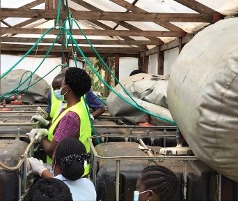Biogas technology, derived from organic materials like agricultural residues and organic waste, is a vital renewable energy source in the global pursuit of sustainability. It supports the United Nations Sustainable Development Goals (SDGs), particularly SDG 7 (Affordable and Clean Energy) and SDG 13 (Climate Action), by reducing greenhouse gas (GHG) emissions, enhancing energy access, and promoting circular economies. The biogas demonstration plant at Uganda Christian University (UCU) exemplifies how localised efforts can advance these goals, encouraging community engagement and amplifying global impact.
Biogas significantly contributes to the global energy mix, accounting for about 9.5% of total primary energy supply and 70% of renewable energy, per the International Energy Agency. Modern bioenergy, excluding traditional biomass, provided four times the energy of solar and wind combined in 2017. By converting organic waste into biogas, biofuels, or electricity, biogas technologies address waste management while mitigating GHG emissions.
However, sustainability depends on responsible sourcing and efficient technologies. The Intergovernmental Panel on Climate Change warns that large-scale bioenergy with carbon capture and storage could strain land and water resources, potentially competing with food production. Using agricultural residues or waste minimises these risks. Anaerobic digestion, central to biogas production, converts organic matter into methane-rich gas, reducing emissions and producing nutrient-rich digestate for agriculture, aligning with SDG 12 (Responsible Consumption and Production).
UCU’s biogas plant demonstrates sustainable bioenergy adoption by converting organic waste into biogas for cooking, reducing firewood reliance. The World Health Organization notes that traditional biomass cooking causes 4 million premature deaths annually due to indoor air pollution. Through workshops and outreach, UCU’s Department of Engineering and Environment educates communities on biogas technology, fostering adoption and aligning with SDG 4 (Quality Education). The plant also serves as a research hub, contributing to global bioenergy knowledge.
UCU’s efforts show how community-focused initiatives can bridge global sustainability goals and local realities, catalysing a low-carbon, equitable future.
Eddie Ojara
Environmental Scientist & Researcher, UCU – Department of Engineering and Environment


